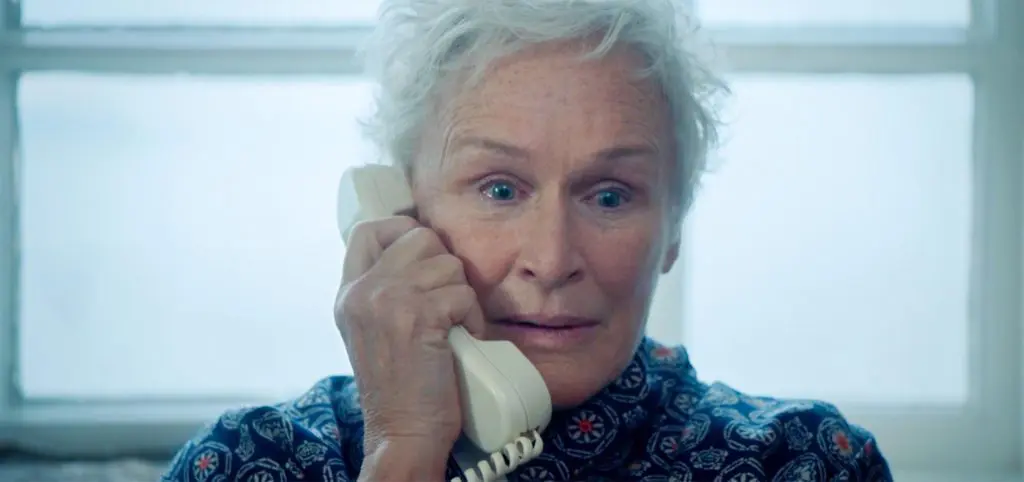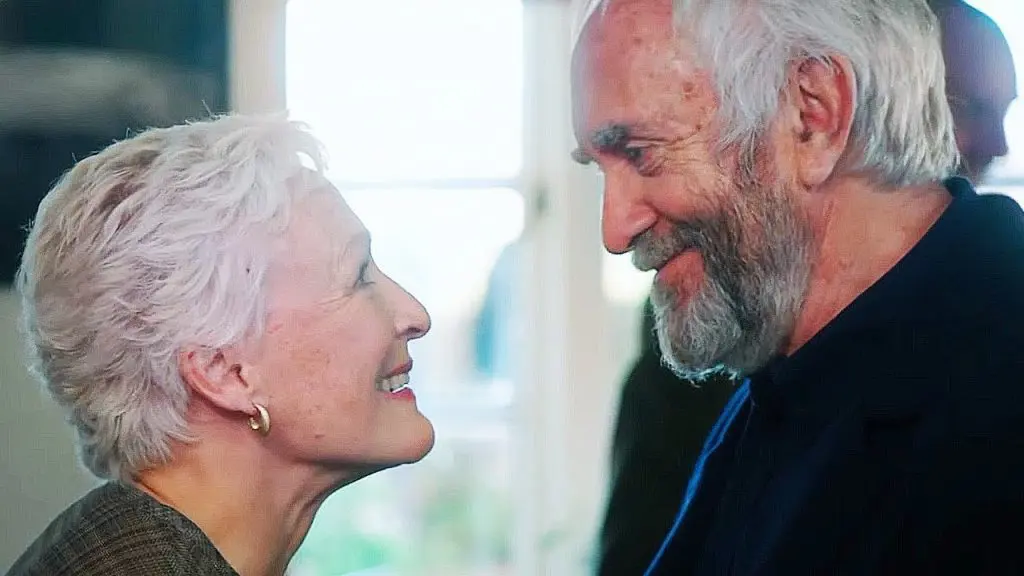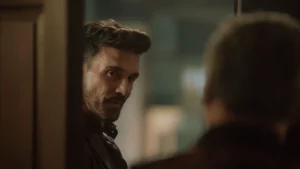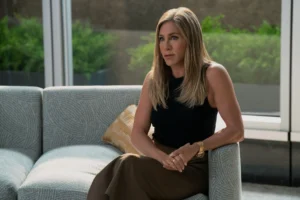Summary
The film’s central mystery is more than obvious from the beginning, so what suspense is there to be had? Ultimately, it’s about the journey, and the final act has the leads throwing verbal haymakers at each other, giving The Wife the juice it sorely needed.
The Wife opens with the fictional acclaimed writer and professor, Joel Casselman, waking up to a phone call from Stockholm, Sweden, in which he is told he’s about to be awarded the Nobel Peace Prize for literature. His wife, Joanne, is next to him. Both are old, grey, worn from the years of growing old together. They say behind every great man is a great woman. In this case, Joanne gets out of bed and is relegated to another extension in the kitchen.
Joanne Casselman (played by Glenn Close) is the doting wife of professor Joel Casselman (Jonathan Pryce). They met in the 1950s when Joel was an English professor in college and Joan was his student. Joel is a philanderer who then leaves his wife and kids for his star student. Joan knows cheaters never stop and must live with his wandering eye because women from her generation stay married through sickness and in health; Back then (and now), I don’t think they counted infidelity as a sickness.
In flashbacks, we see that Joel feels Joanne’s writing has potential, and they meet a female author who has been published, which is not the norm now. Joanne tells her, “A writer needs to write.” The author tells her, “No, a writer needs to be read.” She gives up her dream too quickly, then settles on supporting her husband’s career and having a family of her own. They are also followed around by a writer (Christian Slater) who wants to be Joel’s biographer, but he also might have ulterior motives for following them all the way to Stockholm.

The Wife never engages the viewer fully with its story and often suffers from a script with recycled conflicts that we’ve seen in countless films before it. It has the typical father-son relationship, where the father is too hard on the son and the son is too sensitive to his father’s criticism. The flashback scenes are often dry, poorly realized, and offer little suspense in a mystery that is more than obvious from the beginning, from the film’s trailer, and even, frankly, its title. The mystery is the only way the film would work, so what suspense is there to be had?
The Wife is barely held together until the film’s final act, where the script awakes from its slumber. Close and Pryce’s marital issues finally come to the forefront, and we watch both actors throwing verbal haymakers at each other with stunning swiftness. Both leads are excellent here. Pryce brings the smug, arrogant, and eventual pathetic behavioral justification required, but that has you almost feeling for his character.
Then there is Glenn Close, who was so good in her role showing another side of sexism in Albert Nobbs (and robbed of the best actress Oscar in my opinion) and delivers a performance of touching grace that graduates to righteous indignation as The Wife. Without the leads, the film wouldn’t have made it to the finish line. The final act gives it the juice it needs to get where it needed to be. While I’m not convinced a best actress Oscar nomination is a shoo-in for Close, it should be, and it’s one of her finest performances.




